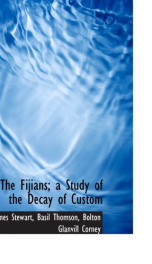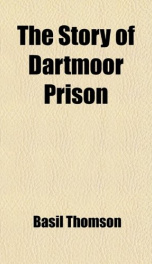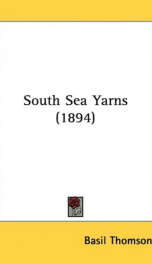the fijians a study of the decay of custom

Purchase of this book includes free trial access to www.million-books.com where you can read more than a million books for free. This is an OCR edition with typos. Excerpt from book: CHAPTER II THE AGE OF MYTH Of all inhabited countries in the world Fiji is probably the poorest in history. No European, who left a record behind him, had intercourse with the natives until 1810, and the historical traditions of the natives themselves scarcely carry back their history beyond the middle of the eighteenth century. While the chiefs of the Marquesas and Hawaii are said to recall the names of their ancestors for seventy- three generations,1 the chiefs of Mbau cannot give the name of any of their predecessors before Nailatikau, who reigned during the last quarter of the eighteenth century, and the earliest name recalled by other tribes of longer memory is only the sixth generation from the reigning chief. It is not that the Fijians were less prone than other islanders to embody their tribal history in traditional poetry, but that the political morcellement of the tribal units left the poets nothing to record. A century ago Mbau was nothing but a petty fortified village in the interior, governed by chiefs whose names were unknown three miles from its'public square. The chiefs of Rewa were equally obscure, and the songs which celebrated their petty achievements died with the generation that sang them. When the great wave of unrest in the interior of Vitilevu sent them forth to fight their way to a new home on the coast, and to found confederations of the tribes they had subdued, their history was born; and at its birth died the old traditions of the tribes they conquered, for vassals in Fiji have nothing to do with memories of departed greatness. 1 The Polynesian Race, by A. Fornander, Vol. i, p. 193. 4 THE BOND OF TAUVU 5 Besides the historical meke there remain a few mythological sagas which refer to a far older period. With ancestor- worshippers like the ... --This text refers to an alternate Paperback edition.
Info about the book
Author:
Series:
Unknown
ISBN:
1125533196
Rating:
3/5 (3)Your rating:
0/5
Languge:
English
Users who have this book
Users who want this book
What readers are saying
What do you think? Write your own comment on this book!
write a commentif you like the fijians a study of the decay of custom try:
Other books by this author
Do you want to exchange books? It’s EASY!
Get registered and find other users who want to give their favourite books to good hands!




